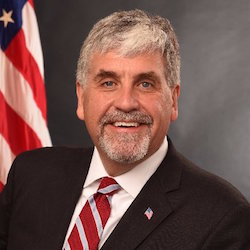
Federal officials say a new division in the U.S. Department of Health and Human Services will protect the First Amendment rights of healthcare workers who object to providing certain types of care on moral or religious grounds. Opponents, however, say it will enable discrimination.
HHS announced its new Conscience and Religious Freedom Division in the HHS Office for Civil Rights on Thursday, saying the division “will provide HHS with the focus it needs to more vigorously and effectively enforce existing laws protecting the rights of conscience and religious freedom.”
“Laws protecting religious freedom and conscience rights are just empty words on paper if they aren’t enforced,” OCR Director Roger Severino said in announcing the new effort. “No one should be forced to choose between helping sick people and living by one’s deepest moral or religious convictions, and the new division will help guarantee that victims of unlawful discrimination find justice.”
| Proposed rule A proposed rule related to the establishment of the Conscience and Religious Freedom Division in the Office for Civil Rights of the Health and Human Services Department will be published in the Federal Register on Jan. 26. A PDF is now available here. |
Acting HHS Secretary Eric Hargan said the department had been planning the new division for months.
“We have religious organizations running nursing homes, hospices and other service providers,” he said at a Thursday event announcing the division. “But for too long, too many healthcare practitioners have been bullied and discriminated against because of their religious beliefs and moral convictions, leading many of them to wonder what future they have in our medical system,” he added.
Because 85% of nonprofit continuing care retirement communities are religiously affiliated, however, the federal government’s approach could limit options for lesbian, gay, bisexual and transgender seniors, Aaron Tax, director of advocacy for SAGE, a national organization that advocates for LGBT older adults, told McKnight’s. The statistic was part of the organization’s “Dignity Denied” report, released in December.
“The lives of LGBT adults are at risk when they can’t rely on long-term care settings to protect them at the most vulnerable time in their lives,” Tax said.
SAGE CEO Michael Adams said, “Everyone has the freedom, under the First Amendment, to practice their religion, but when deep morals or religious convictions overshadow the responsibility to provide care to sick and dying people, it is dangerous for our nation.”



